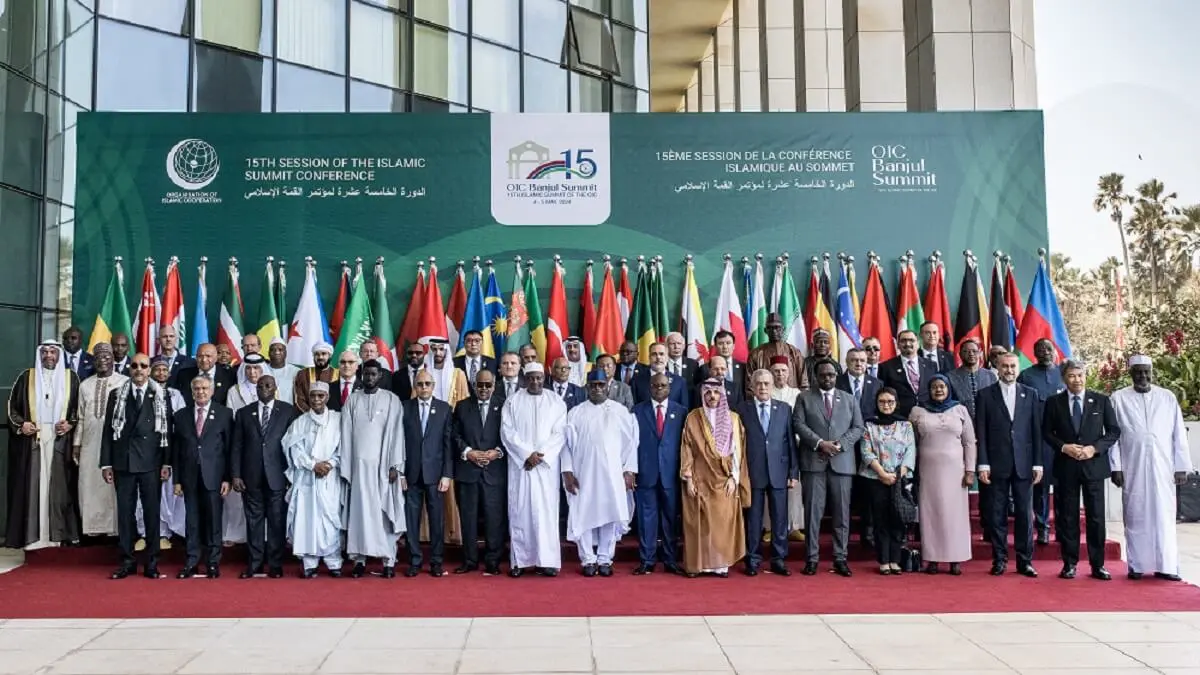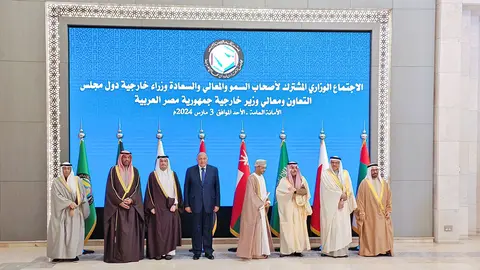Morocco calls for more attention to be paid to the least-developed African countries

- Involvement of the King of Morocco
- Development of the Western Sahara side of the Sahara
- Challenges for the Organisation of Islamic Cooperation countries
Morocco has long focused on the need to promote growth in the least developed African countries. In line with the African Atlantic initiative that seeks to boost the continental Atlantic coast, of which the North African country is a very active part, the challenge is to involve the most disadvantaged countries in impoverished areas affected by harsh conflicts, such as the Sahel, so that they can have access to the Atlantic area through the promotion of the Atlantic side itself and thus improve their economies and trade flows.
Involvement of the King of Morocco
The King of Morocco, Mohammed VI, pointed out the need to devote greater care and interest to the least developed African countries, members of the Organisation of Islamic Cooperation (OIC), in order to face the various challenges affecting their development process, in a speech made on the occasion of the 15th OIC Summit Conference held in early May in Banjul, The Gambia.
"By virtue of the Kingdom of Morocco's belonging to the African continent and the deep-rooted human and spiritual ties that characterise its relations with its brotherly countries, we wish to affirm the need to devote greater care and interest to the least developed African countries, members of our organisation, in order to face the various challenges affecting their development process," the Moroccan monarch said in his address to the 15th OIC Summit Conference, as highlighted by Morocco's official news agency MAP.
The speech was delivered by the Moroccan Minister of Islamic Affairs, Ahmed Taoufik, during the solemn opening ceremony of the Islamic summit, and it stated that these countries are particularly subject to growing threats to their energy and food security, as well as to their economic growth, which has a negative impact on their stability and leads to the worsening of their social and economic conditions.

The aim is to promote the economic and political development of these countries in order to generate greater stability and economic prosperity. A trend that would serve to prevent the proliferation of destabilising groups that generate complicated and dangerous situations for the African continent and the world in general. All of this through an initiative that favours access for these countries in areas such as the Sahel to the Atlantic Ocean so that they can also benefit from existing economic activity and trade routes, with a view to other markets such as Europe or the Americas.
Nations known for their belligerence and generation of conflicts on an international scale, such as Russia or the Islamic Republic of Iran, have been trying for years to influence certain areas of Africa in favour of their political and economic interests through related groups or even private military companies, such as the Wagner Group, linked to the Kremlin and particularly active in conflict zones such as the Sahel, also affected by the action of jihadist terrorist groups and criminal gangs engaged in all kinds of illegal activities such as human trafficking.
The aim is to bring stability and avoid conflicts that could lead to major international confrontations. Especially in an area that is already very unstable, with countries such as Mali, Burkina Faso and Niger currently ruled by military juntas that have recently staged several coups d'état to oust the legitimate government in place and install authoritarian military governments, while national landscapes are marked by serious political, social and economic problems.
On this point, Morocco advocates a clear South-South cooperation in line with the Atlantic African States Initiative for African cooperation and integration between countries bordering the Atlantic Ocean with the aim of consolidating peace, stability and regional economic prosperity.
"We are also announcing the launch of an international initiative to give the Sahel countries access to the Atlantic Ocean," said King Mohammed VI, who referred, for example, to the Morocco-Nigeria gas pipeline project, which is inspired by the same spirit of solidarity, since it is a project for regional integration, joint economic development and a boost to the dynamics of development on the Atlantic coast.

Development of the Western Sahara side of the Sahara
In fact, Morocco is fully promoting this initiative to boost the Atlantic coastline through a process of development of its own Atlantic side, including that of Western Sahara, a territory that the Moroccan kingdom considers to be part of the so-called southern provinces.
Faced with the conflict over Western Sahara since Spain's departure from the area as a colonial power, Morocco proposes a formula of broad autonomy for the Sahrawi territory under Moroccan sovereignty, respecting the resolutions of the United Nations (UN), with the aim of developing the area in all areas. This proposal has the support of many important countries such as the United States, Israel, the United Arab Emirates, Germany and Spain itself, which see it as the most serious, credible and realistic option for resolving the Saharawi dispute. The Polisario Front, which advocates holding a referendum on independence, has less support, including that of Algeria, Morocco's great political rival in the Maghreb.
This process of greater development and investment promotion on the national Atlantic side is highly beneficial for other African countries that could be favoured by the development of this region.

Challenges for the Organisation of Islamic Cooperation countries
The Moroccan monarch said that the latest OIC summit came at a time when several regions of the Islamic world are still under the weight of political-military tensions and unrest that threaten security and negatively affect living conditions in many of the organisation's member states, especially among Africans. This is a clear reference to countries that have gone through traumatic episodes such as the aforementioned coups in Mali, Niger and Burkina Faso that gave way to military juntas in power.
"Our organisation and its specialised institutions are called upon to redouble their efforts and initiatives aimed at these countries, in a spirit of fraternity, solidarity and synergy among Muslims, and to benefit collectively from the development programmes and plans adopted at our summits and meetings," insisted the monarch Mohammed VI, as MAP agency recalled.

Moreover, the Alawi king indicated that "the broadening of the horizons of common Islamic action and the exploitation of the national potential of our countries, requires a realistic and constructive evaluation of the mechanisms for implementing the work programme of our organisation, as well as improving the legal framework, with a view to its adaptation, to respond to the needs of our societies in the areas of investment and trade, thus allowing the productive sectors the desired integration and economic complementarity".
— Diplomacia_marroquí 🇲🇦 (@DiplomaciaM) May 5, 2024
King Mohammed VI stressed that the OIC countries are not immune to what is happening around them, as they face major challenges, such as security. Morocco is also recognised by other powers such as the United States, France and Spain as a very reliable partner for maintaining security and stability in North Africa and the Sahel. Morocco's Director General of National Security and Territorial Surveillance (DGSN-DGST), Abdellatif Hammouchi, has held numerous meetings with the top security and defence officials of nations such as the United States, France and Spain with a view to coordinating security mechanisms and joint cooperation to act against jihadist groups and criminal gangs that operate in the region and destabilise the area, with repercussions in nearby continents, such as Europe.










